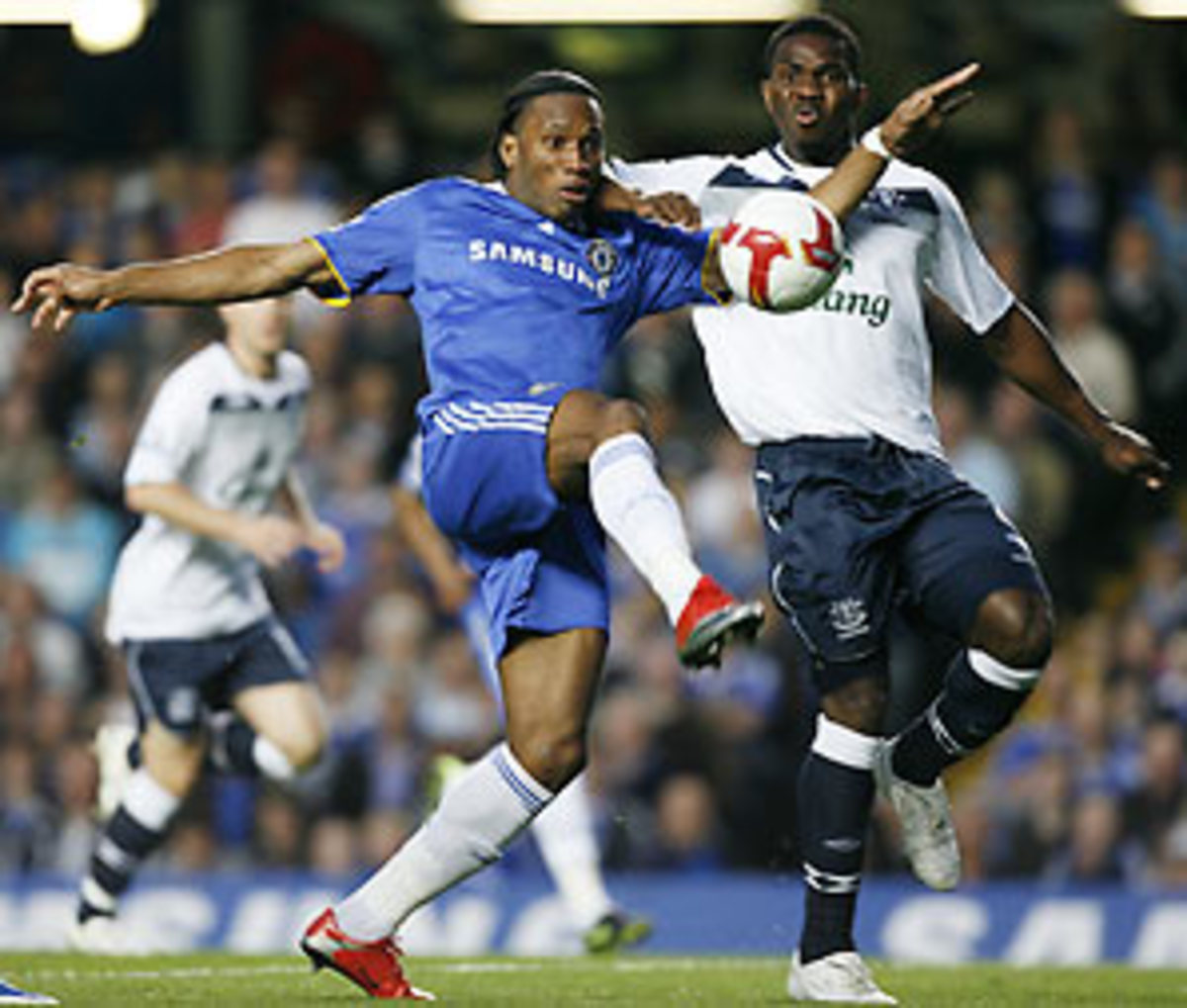Goal-first African strikers setting bar in MLS, Champions League
When I was in Ghana for the most recent African Cup of Nations, I watched the kids play whenever I got the chance. Their skills were mind-blowing. And I wasn't alone on the sidelines. Ghana, like many West African nations, is crawling with scouts, coaches and agents who visit the various academies in search of the next Stephen Appiah or Michael Essien. No wonder. Say what you will about exploitation -- and there is plenty to say about it, though not here, not now -- the well of young talent on the continent seems bottomless at this point, especially to someone seeking an attacker.
Attacking is where the Africans excel these days. Even defensive players like Essien and Arsenal's Kolo Touré play the game with an attack-first mentality. It's a mind-set of thinking only about goals. As a Ghanaian friend of mine said during the Cup of Nations, "We need more goals. Goals, goals, goals! More goals!"
The free-form nature of the ubiquitous pick-up games in West Africa nurtures the desire for goals and only goals. Because, let's be honest, when you're 13 and kicking around with your buddies, who in his right mind would volunteer to play centerback? Where's the glory in that? Or the big contract?
"The greatest teacher is playing," said Paul Mariner, a former England international striker and current New England Revolution assistant coach. "Generally, when you're playing two-on-two or three-on-three or small-sided games with your mates, you want to go. You don't know about patience, you just naturally go forward. You want to get to the goal as quickly as you possibly can."
In Tuesday's Champions League semifinal first leg between Barcelona and Chelsea, the world will watch two of the finest strikers around face off against each other, and it's no coincidence they are both West African. Barça's Samuel Eto'o, from Cameroon, and Chelsea's Didier Drogba, from the Ivory Coast, display playing styles as different as their hairstyles -- one is a slashing, running-of-the-ball type, the other a powerful, visionary beast -- but they both exemplify the reason clubs all around the world have snapped up so many young African players over the past decade or so.
In the last two years, the Revolution have taken the lead in MLS. The coaches have made several scouting trips to West Africa, and the club has signed five Africans in the last two years, including Gambians Kenny Mansally and Sainey Nyassi and Zimbabwean Kheli Dube.
MLS clubs, like their counterparts in Europe, are particularly interested in strikers. Today, there are 26 Africans in the league, only three of whom are listed as defenders, plus one goalkeeper. Several have already begun making their mark on the league. Seattle's Congolese winger, Steve Zakuani, scored his second goal in the Sounders' win this past weekend. Mansally, Nyassi and Dube all have a goal for the Revolution. New York's Senegalese striker, Macoumba Kandji, possessing an awesome combination of power and agility, has scored once and added an assist. Same for Chicago's Ghanaian speedster, Patrick Nyarko, who has started all six matches.
There are several reasons for MLS teams' newfound propensity for snapping up African players: These kids are talented, they're ambitious and they're cheap (usually). That last one is important, given the league's tight salary cap, but the first two are the keys.
Ambition, first. The African kids who come to MLS, like the African kids who join small clubs in Portugal or France or Belgium, have big aspirations. Just like the coaches' hopes, the players themselves want to be the next Eto'o, Drogba or Essien, who are viewed as near-gods in their home countries. In Accra, Essien's image is on billboards everywhere and his games for Chelsea are shown on television. So, if the Revolution can sign a young player like Mansally or Nyassi, develop him for several years and then earn a transfer fee on a move to Europe, everyone is happy, from the club owner to the player.
Of course, for any of that to happen, there has to be talent, which is what drew the Revolution to their latest recruit, 18-year-old Cameroonian Stephane Assengue.
"He's extremely raw, you know, his touch is not the greatest," Mariner said, adding that Assengue is probably a year away from truly contributing. "But he has this knack for getting into the box. He has this knack for getting himself into very good positions. If you're a defender and you have him in a good position, he has the ability, in three yards, maybe five yards, to be a yard in front of you. It's incredible. I don't think you can teach that."
In many ways, teaching seems to be the enemy here. It's ironic that there is so much money and energy put into coaching here in the U.S., yet what the top pro coaches are looking for is uncoachable. They want that special thing that all the special strikers have, that intangible ability to be in the right place at the right time, that unteachable talent to solve a defense, that "knack," as Mariner calls it, and those things only come when the kids teach themselves. I was recently heartened to hear from a youth coach that today's coaches-in-training are being asked to encourage their young players to dribble more and express themselves freely.
"In Ghana, there are no coaches flying in there and teaching them all the different moves," Mariner said. "Everything's a throwback to 'OK, lads, there's a ball. Go play.' There's no stopwatch, no clipboard, no cones. Just work it out for yourself. They're free."





